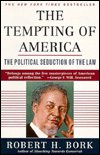Education and the Classical Curriculum
Then as a teacher, I used to ask my high school classes the same question. You can imagine their answer: to get an education so you can go to college and get a great job and make a lot of money. But that's NOT the purpose of school. While the future ability to provide for a family is one of the functions of education, it is certainly not the only function or even the most important.
Education is the vehicle societies use to preserve themselves. That is, older generations educate the younger so the entire social structure can continue to grow. Americans educate their young so the nation doesn't collapse around us like a house of cards. As a teacher, I always saw my role as that of a runner in a relay. My job was to pass the baton to the runner who was to follow in my footsteps. If the baton were dropped, both of us would have failed.
But how do you do it? The United States is by any measure the greatest nation on Earth and the greatest in history, whether you look at economic prosperity, American ingenuity and inventiveness, the development of the world's most elaborate infrastructure, the amount of free time we have, and even the thriving religious diversity--hundreds of denominations, many of them filled with sincere people. The educator's role is to distill the most important principles in that culture and convey them to the citizens of tomorrow.
And this brings me to: the CLASSICAL CURRICULUM, a kissing cousin to what colleges call the liberal arts. "Had we but world enough and time," we could spend years and years teaching children the best works of every world culture. But we don't. We have 12 short years to make devoted American citizens of them. It is a sacred duty and one not to be taken lightly. And there is so much material that is critical: Shakespeare, John Donne, Beowulf, Hemingway, T.S. Eliot, Twain, Jonathan Swift, Daniel Defoe, Charles Dickens, Alexander Dumas, Victor Hugo, John Steinbeck, Milton, Bunyan, and the list goes on and on and on, and in every subject. The classical curriculum is the only way to approach education; everything else simply wastes too much time. How can we prepare our children for the world of tomorrow if we waste half their time on material they will never hear of again? Face it, your kids don't want to go to school, and sometimes you'd rather not send them. Is it fair to waste their time on material that has virtually no educational value, material that is chosen not for its relevance to American reality, but for its ability to elicit certain emotional or moral responses, many of them contrary to the things that made this nation what it is today?
Most schools today, including KISD, tend to follow a hit-or-miss curriculum, an unfocused shotgun blast of classical elements, political correctness, multi-culturalism, and books and projects forced on the schools by various interest groups. All of these things, while they may have some merit, are examples of the good shouldering out the BEST.
I support the classical curriculum because it is the most efficient and effective way to educate students in the things that matter most in all areas of an American life.
You can read more about the Classical Curriculum by clicking here.








